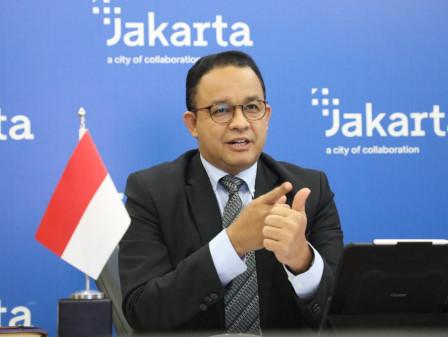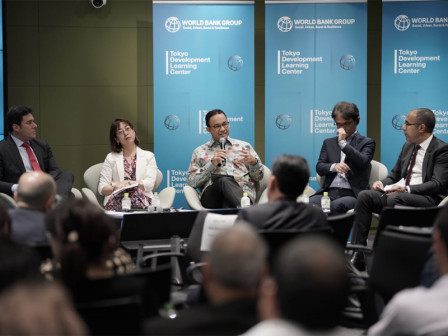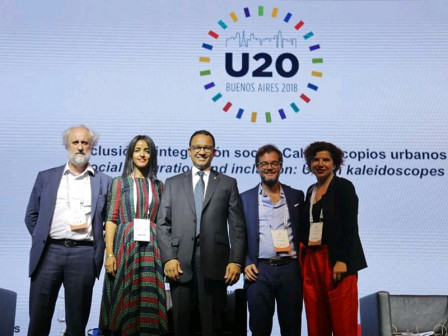Jakarta to Bring Experience of Planning a Sustainable City in U20 Mayors Summit 2022
Reported by Yudha Peta Ogara | Translated by Nugroho Adibrata
Jakarta is about to host the Urban 20 Mayors Summit (U20) 2022 which will be attended by world city leaders to discuss solutions to challenges and efforts to restore cities post-pandemic.
Just like a pandemic, today we have to live side by side with an environment that is constantly changing
Jakarta Governor, Anies Baswedan, disclosed the U20 Mayors Summit became a forum for best practice cities in the world to exchange ideas and experiences.
Jakarta itself will bring the experience of managing a sustainable city. During the pandemic, lessons emerged that city resilience and public health must be the backbone of moving forward. Aside that, the pandemic also presents an opportunity to redefine the city.
In the Upcoming U20 Mayors Summit, Anies Prepares Agenda for 6 Major Discussions"Just like a pandemic, today we have to live side by side with an environment that is constantly changing due to climate change. Mitigation and adaptation actions must continue to be intensified to achieve the decarbonization that we all aspire. Jakarta will bring experience in integrating public transportation which has an impact on reducing congestion and carbon emissions," he expressed, in the U20 Talk: Urban Issues in the G20 Presidency with some national figures as quoted by Jakarta PPID's press release, Thursday (2/17).
He revealed Jakarta is committed to encouraging the transition towards net zero emissions by strengthening the public transportation system as the backbone of the movement of Jakarta residents.
Through the JakLingko transportation integration system and the revitalization of sidewalk widening, the use of electric buses and the provision of bicycle lanes were expected to increase people's interest in switching from private vehicles and participating in realizing a low-emission city.
On the other hand, various accelerations occurred during the pandemic, one of which was increasing digitization. During the pandemic, the leap in the use of technology was felt. Restrictions on social interaction also required residents to work from home.
"Hence, it is necessary to rearrange the concept of housing in urban areas, which used to be just a residential house, now it is a workhouse, including the zone around residential. All new public housing in Jakarta has now been conceptualized as workhouses and residences," he explained.
Jakarta also provides easy access to information about the city based on applications, through the Jakarta Kini (JAKI) application and the provision of free internet networks for lower-middle-class groups through JakWIFI to support socio-economic activities during the pandemic.
Thereby, there is continuity between technology that drives productivity, cities that facilitate the best talent, and urban planning that prioritizes inclusiveness, namely providing space for all.
"In the future, we need to jointly redesign the city with a sustainable development approach to create a city that is more livable for its citizens. Therefore, let's take advantage of the momentum of the Mayors Summit U20 and the G20 Indonesia Presidency to discuss together looking for alternative solutions to the challenges and dilemmas faced by the city. So, the impact will be felt by the public in real," he concluded.





